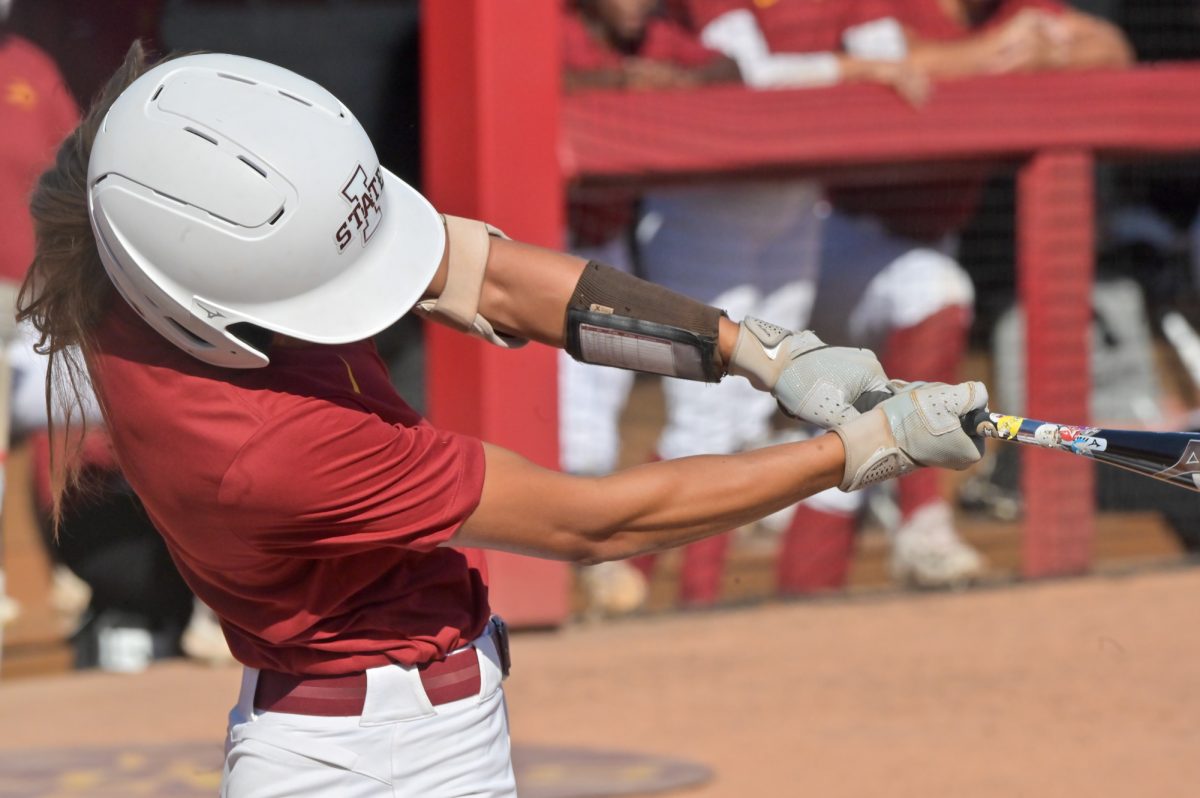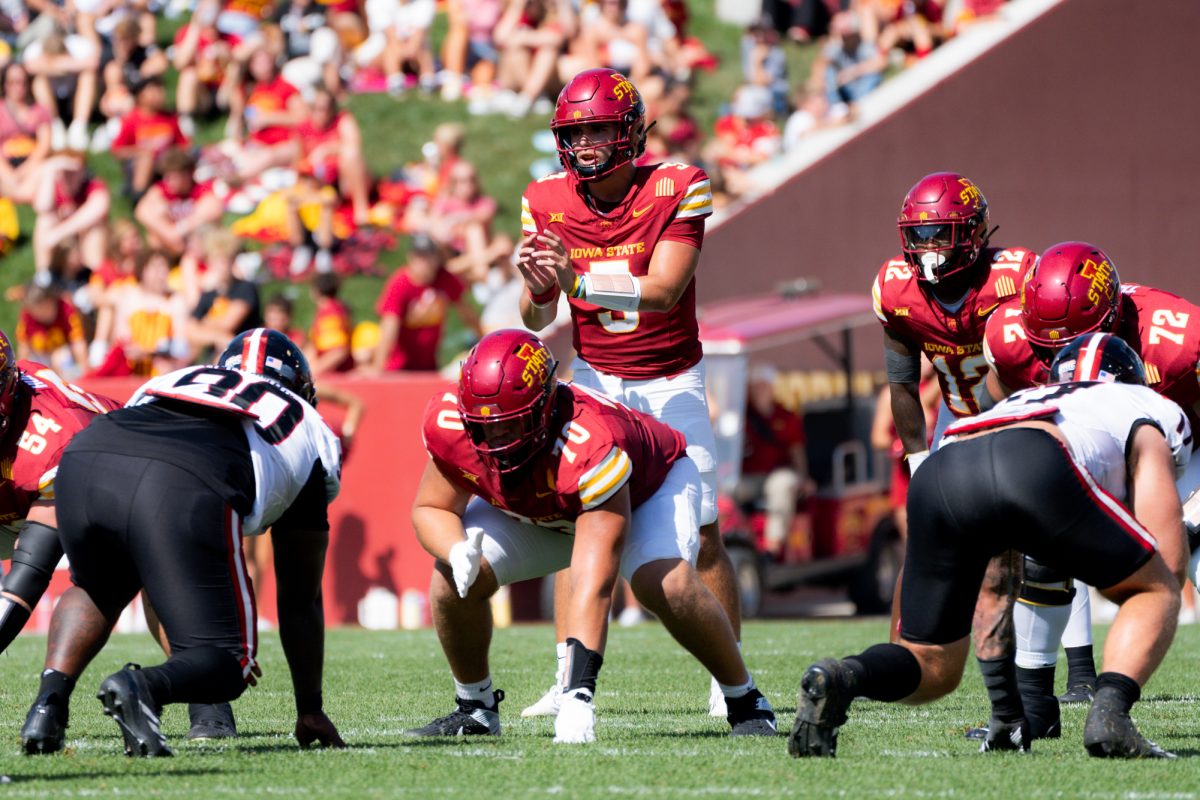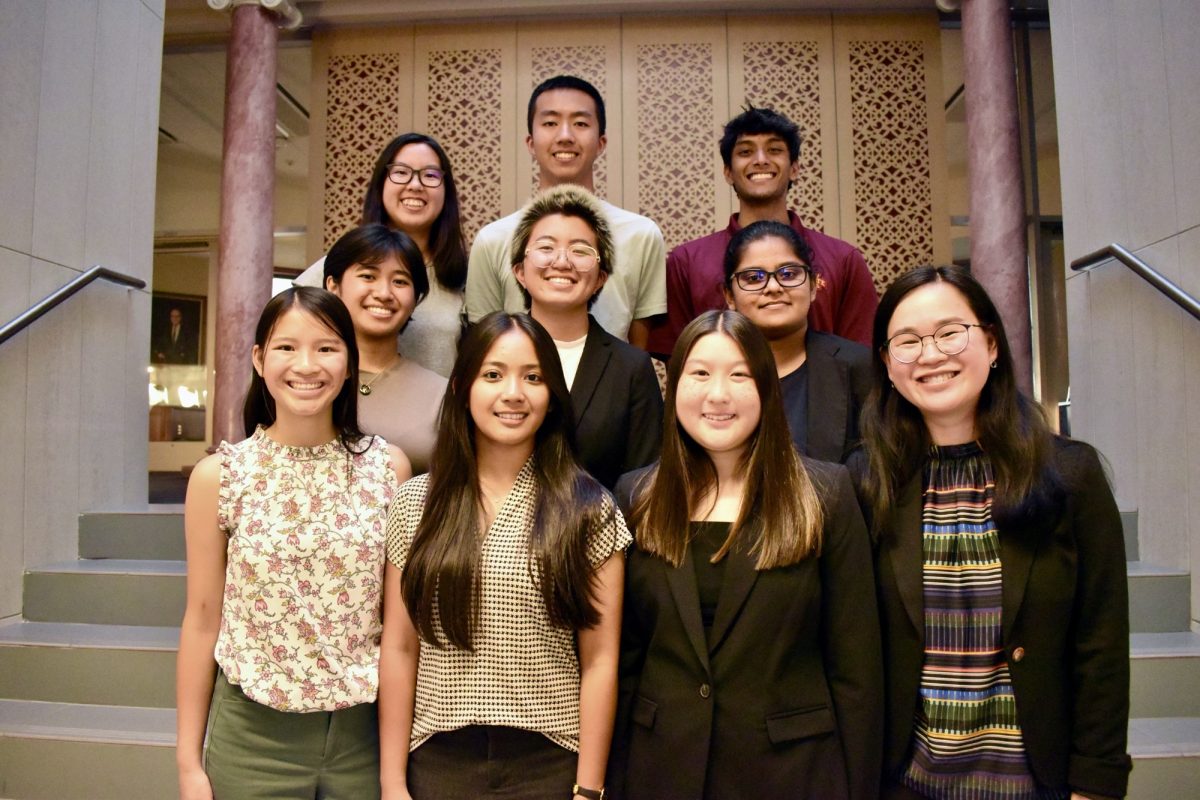Engineering professor wins literature award for essay on turbine engines
June 18, 1998
An Iowa State engineering professor and his team of five researchers from around the world won an award for their research in gas turbine engines.
The team won the 1998 George Wallace Melville Award for their four-part 80-page essay entitled “Boundary Layer Development in Axial Compressors and Turbines,” which appeared in the American Society of Mechanical Engineering Journal of Turbomachinery, according to a press release.
Ted Okiishi, an ISU engineering professor, researched with a team of three engineers from GE Aircraft Engines, located in Cincinnati, Ohio. The team consisted of a former ISU doctoral student, an engineer from the University of Tasmania and one from the University of Cambridge.
The research engaged in the task of measuring the fluid flow through gas turbine engines in the hopes of making it more efficient. New designs will result in higher performance engines that use fewer blades and are more compact, according to a press release.
“The main benefit will be better gas turbine engines,” Okiishi said. He said these engines are used in every airplane, electric power generators and to move trains around the world.
“The engines will be more compact, and because they are more compact and lighter, they can use the extra weight elsewhere,” he said. He said they may be able to put more fuel or even passengers on an airplane.
“The impact of the award is a statement: It is a good thing that we can have industry join with academia to accomplish a project that involves partnering,” Okiishi said.
Okiishi said that GE Aircraft Engines gave his team a grant five years ago, which they used to pay the doctoral student and for their travel to Cincinnati, where the majority of the research took place.
“The team invented the instrumentation that measured the phenomena that we were trying to measure,” Okiishi said. “We were learning by doing,” he said.
Okiishi said the heart of the story involves then-graduate student, David Halstead, who lived in Cincinnati during the research period.
Okiishi said Halstead took care of the details “day in and day out.”
“It was an education that can’t be beat,” he said.
Okiishi said the research was all teamwork.
“… [Halstead] couldn’t have done it without us and we couldn’t have done it without him,” he said.
Okiishi also mentioned that the team thought so much of Halstead that they made him senior writer for the publication and printed his name above those of the other researchers.
Okiishi said there were over 2,000 such technical papers written in 17 different journals. In order for a paper to win the award, it has to be nominated by a reader and then is selected by an interim committee that has been appointed by the American Society of Mechanical Engineers (ASME).
According to a press release, the Melville Medal is the highest honor the society bestows for technical literature. Admiral George W. Melville, an honorary member and former president of ASME, began the award in 1927.
Formal presentation of the award will take place in November at ASME’s Annual International Mechanical Engineering Congress in California.






